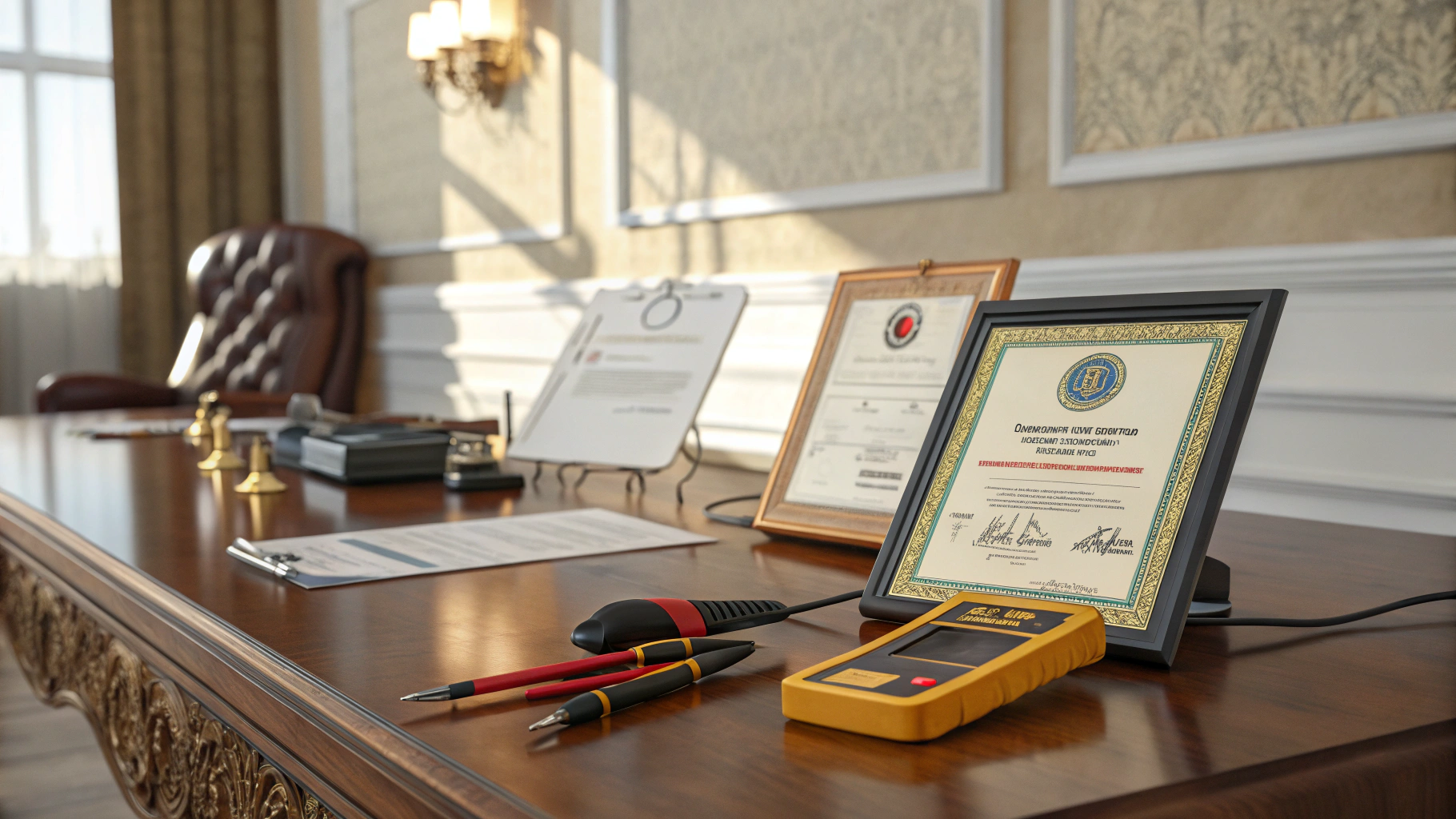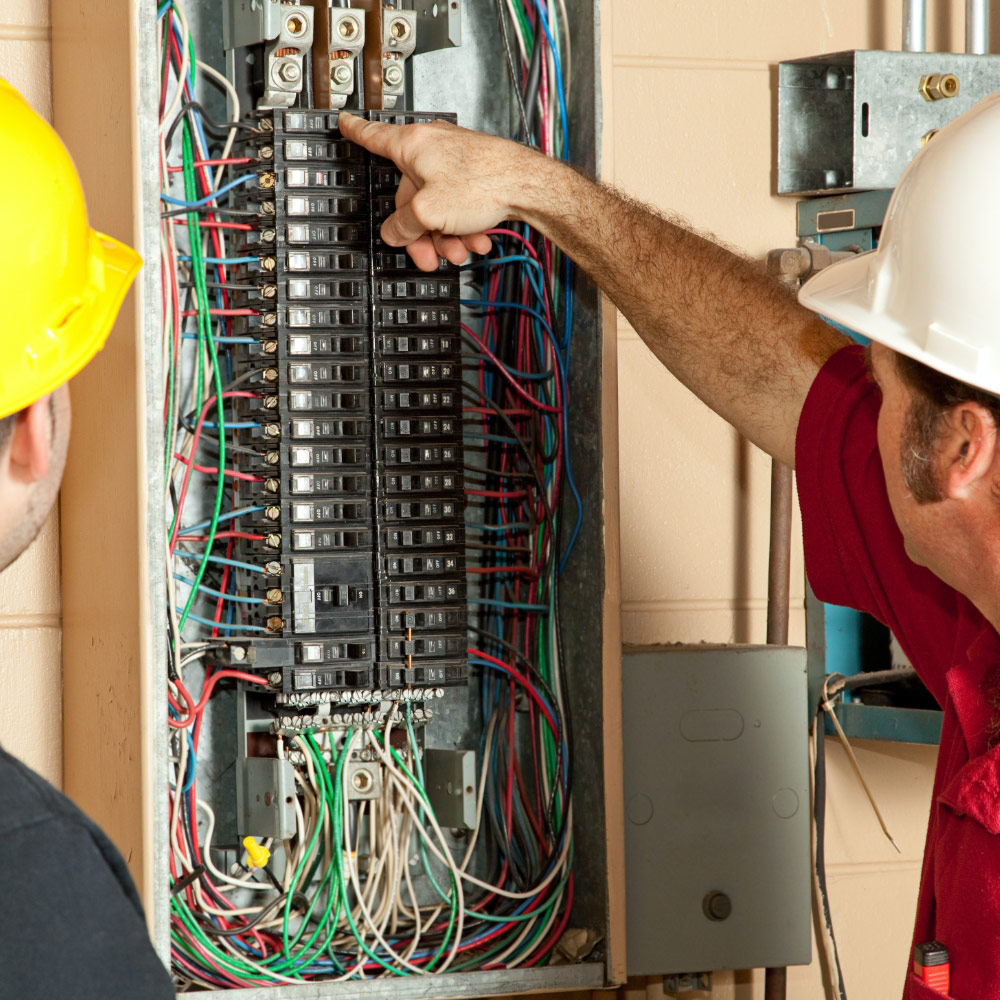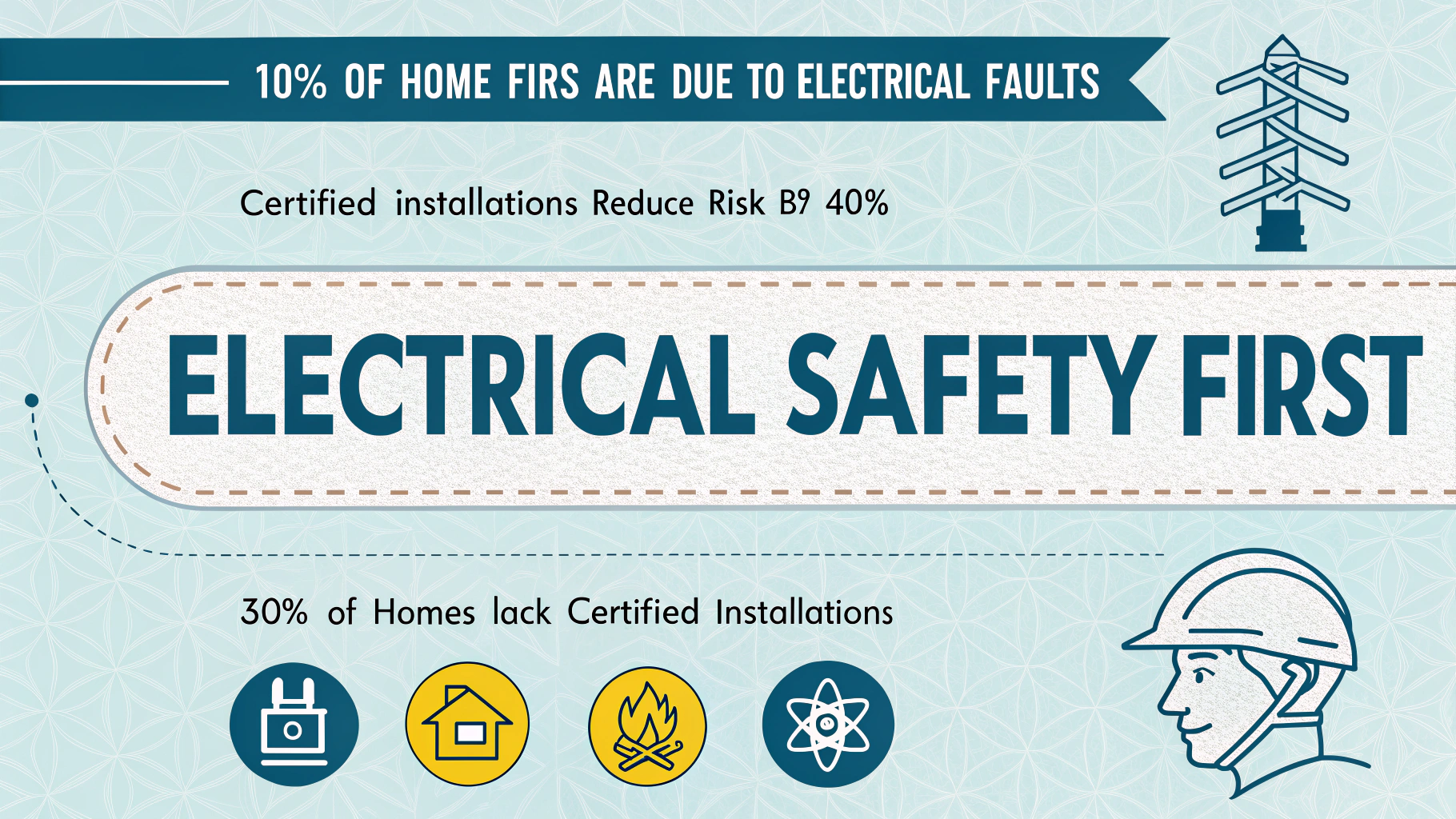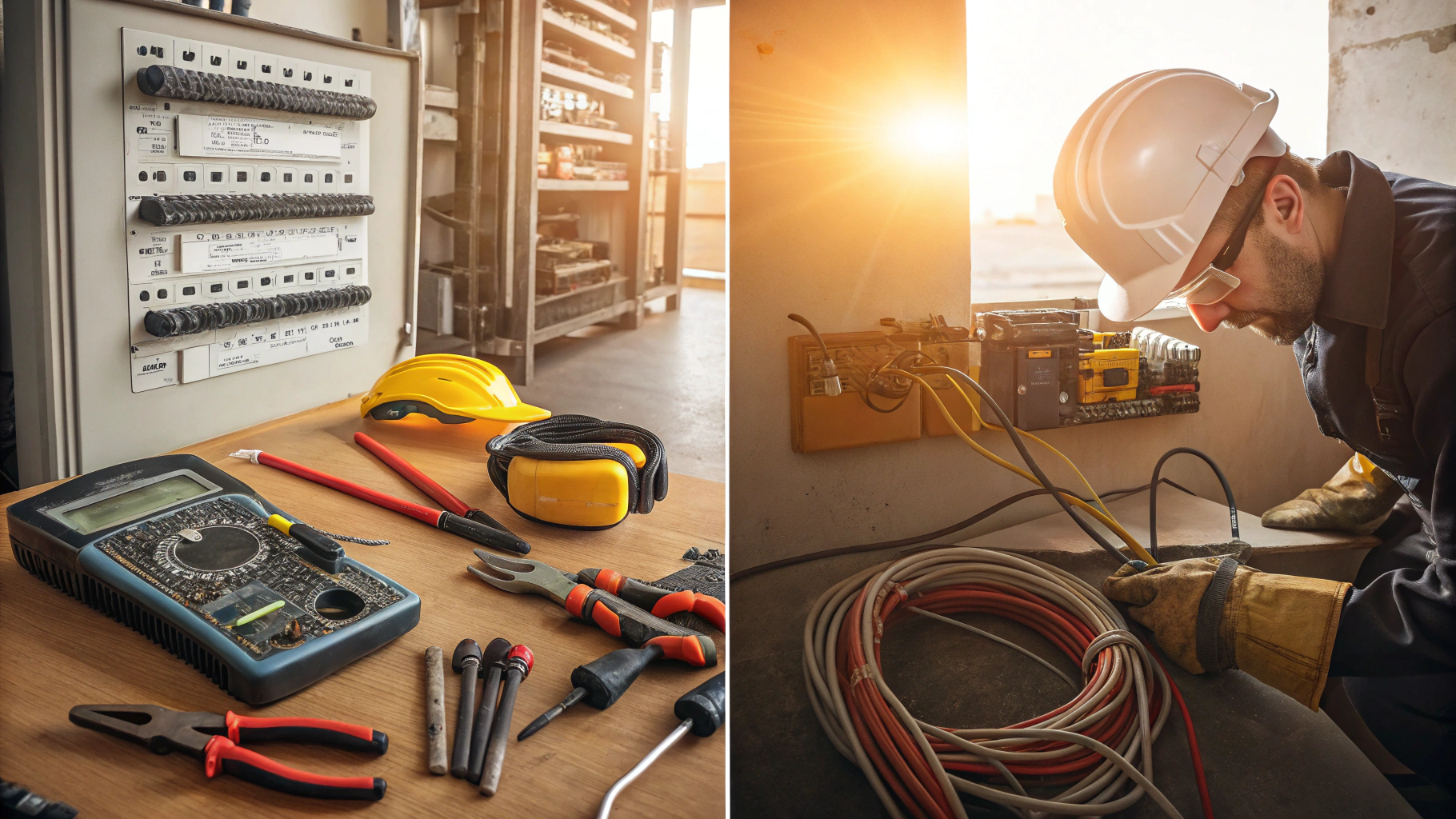Hire Electricians Safely: 3 Must-Check Certifications
When you hire electricians, you’re trusting them with one of your home’s most dangerous systems. Faulty electrical work causes over 45,000 U.S. home fires annually, often due to overlooked safety protocols. While pricing might steer your decision, skimping on credentials can lead to catastrophic risks. As a homeowner in Illinois, I learned this firsthand when a $50 "discount" electrician nearly burned down my garage by miswiring an outlet.
This guide cuts through the complexity to show you how to verify certifications that prioritize safety over shortcuts.

Why Certifications Matter: What Happens When You Hire Unqualified Electricians
Hiring uncertified electricians isn’t only risky… it’s expensive.
Safety First
Unlicensed workers often lack training in hazard prevention. For example, improper grounding or overloaded circuits account for 13% of residential fires 1. Certified pros follow strict codes like the National Electrical Code (NEC) and OSHA standards to reduce these dangers.
Financial & Legal Time Bombs
Imagine discovering your insurance won’t cover a kitchen fire because the electrician lacked credentials. That’s the reality for homeowners in states like Florida, where unlicensed work voids policies. Fines for violations start at $5,000, and sellers face lawsuits if flaws surface during inspections 2.
Hidden Costs Add Up
You might save $200 upfront with a cheaper contractor, but correcting code violations (like missing GFCI outlets) often costs 2–3 times more. Licensed electricians fix it right the first time.

3 Certifications to Demand When Hiring Electricians
1. OSHA Certification: Workplace Safety Basics
OSHA-certified electricians understand shock prevention, arc flash risks, and equipment safety, even if OSHA standards technically apply to employers, not residential contractors.
- What They Learn:
- How to handle single-phase systems (common in homes) and three-phase setups (industrial/commercial).
- Using flame-resistant gear and lockout/tagout procedures to de-energize circuits.
- Performing risk assessments for high-voltage scenarios, like panel upgrades 3.
Studies show OSHA-trained pros reduce worksite injuries by 60% through proactive safety habits 4.

2. NFPA 70E: The Gold Standard for Hazard Prevention
While not legally required for homes, NFPA 70E compliance slashes injury risks during repairs. Think of it as "above-code" safety.
- Key Protections:
- Setting arc flash boundaries (safe distances from live wires to prevent burns).
- Requiring insulated tools and emergency response drills.
- Mandating thermal imaging scans to detect hidden overheating 5.
Electricians trained in NFPA 70E reduce arc flash injuries by 80% compared to those cutting corners 6.

3. State Licenses: Your Local Safety Net
Licensing varies: Florida issues statewide licenses, while Wisconsin lets cities set standards 7. But all require exams on the latest NEC rules.
How to Verify Credentials in 4 Steps
-
Confirm Their License
Ask for the license number and plug it into your state’s online verification portal. In Chicago, use the Department of Buildings’ tool 2.
-
Demand Insurance Proof
Make sure they carry $500k+ liability insurance. Uninsured contractors transfer injury liability to you if a worker gets hurt on your property.
-
Look for Advanced Training
Certifications like NFPA’s CESCP or NETA credentials show mastery of safety protocols, not just code minimums 11.
-
Check Reviews for Red Flags
Search platforms like Angi for complaints about ignored codes or failed inspections.

Why Certified Electricians Save You Money Long-Term
Yes, they cost more upfront. A master electrician charges $70–$130/hour versus an apprentice’s $40–$50 12. But consider:
-
Energy Savings: Properly installed systems cut utility bills by 10–20% through optimized efficiency.
-
Insurance Perks: Some providers discount premiums for homes with certified electrical work.
-
Resale Value: A clean Electrical Installation Condition Report (EICR) reassures buyers and prevents costly re-dos 1314.

Protect Your Home: 3 Pro Tips
1. Request Paperwork Post-Job
Always get an inspection certificate (like a U.S. version of the U.K.’s EICR) detailing compliance.
2. Learn the Basics
Free courses like Relias’ Home Electrical Safety explain outlet hazards and warning signs 15.
3. Grill Them Pre-Hire
Ask: “Will you pull permits?” and “Do you follow NFPA 70E?” Hesitation here is a dealbreaker.
Certifications aren’t just paperwork—they prevent fires, fines, and financial ruin. When you hire electricians, prioritize OSHA readiness, state licenses, and NFPA 70E know-how. Your home isn’t a lab for DIY experiments. Choose pros who treat safety as non-negotiable.

